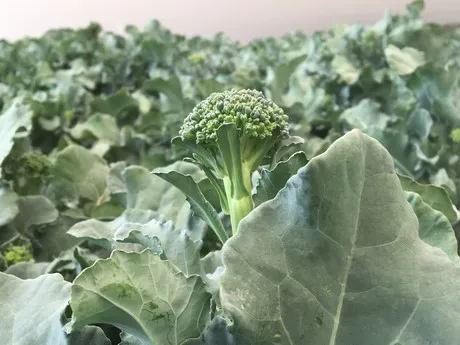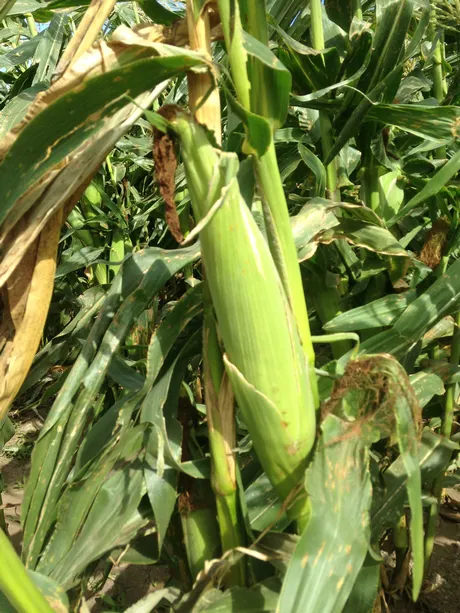"Know where your food comes from" - that is the message from passionate Victorian vegetable farmer Dom Galati, who is not only focused on growing freshly grown produce, but also educating consumers on the importance of eating fruit and vegetables.
"Locally, I just speak to people and ask do they know how that was grown, do they understand that a seed was planted four months ago, so they could eat that produce today," he said. "You can't just go to the shop and buy everything, you have to understand where it comes from. Also, kids need to eat veggies too. We have all eaten processed food. It tastes good but you'd be better off with a plate of veggies."
Mr Galati is the manager of Rosengal Group's Lindenow farm, which is a family-run business, with a niche in hand-picking and a focus on a premium high-quality product. He regularly posts on social media, trying to spread his knowledge and experience from both on the farm and in the wholesale market.

He adds that he is still astonished that a lot of children do not know where an apple comes from, and that maybe it could be introduced into the education program of schools.
"When I went to school, there was a horticulture program available," Mr Galati said. "It was only one or two sessions a week, but there was a little bit there. But kids these days, including my own, don't understand some things about how products are grown, or more importantly what the nutrient benefits are."
One example, he says, is the comparison between fresh versus frozen products.
"My daughter is right into the shakes and smoothies, and she makes them from scratch, but there was packets and packets of frozen berries in the freezer," Mr Galati said. "I had to encourage her to buy the fresh berries off the shelf. Yes, they might be more expensive, but they are grown in Australia; so, one you will support a local farmer, and two, it is better for you. Don't use frozen stuff that has been imported."

Mr Galati adds that it is not just the children that have lessons to learn, with adult consumers needing to pay more attention to the seasonality of fresh produce. Not only will it ensure better quality produce, but it will be more affordable when it is in greater supply.
"When I was growing up, we had sweet corn and beans when they were available in summer - we didn't eat them in winter because they weren't available," he said. "We ate root vegetables, and cauliflower and broccoli. In summer my mum would freeze borlotti beans and pull them out in winter and cook them. Now you can get nearly everything all year round. Mangoes used to be a Christmas and January, but now they start in August and go through until April. That comes down to demand and education."
It is just as important that consumers change their habits when it comes to buying fruit and vegetables that are not 'perfect' in appearance, according to Mr Galati.
"I have got beans here that are going to the cows, that I know are better than the ones in a can or frozen bag," he said. "They can be sold, but people won't buy them based on their appearance. But if they are chopped up into billets in a frozen bag, or a tin of soup, people will buy them no problem. It doesn't matter where they came from, what chemical they have on them, how they were processed, or how much the worker was paid to pick them."
He says one place consumers can get this education is through greengrocers, who in most cases are keen to pass not only their passion and knowledge of the fresh produce industry, but the economic benefits to the local community.
 For more information
For more information
Dom Galati
Rosengal Group
Phone: +61 3 5157 1323
www.facebook.com/rosengalgroup
